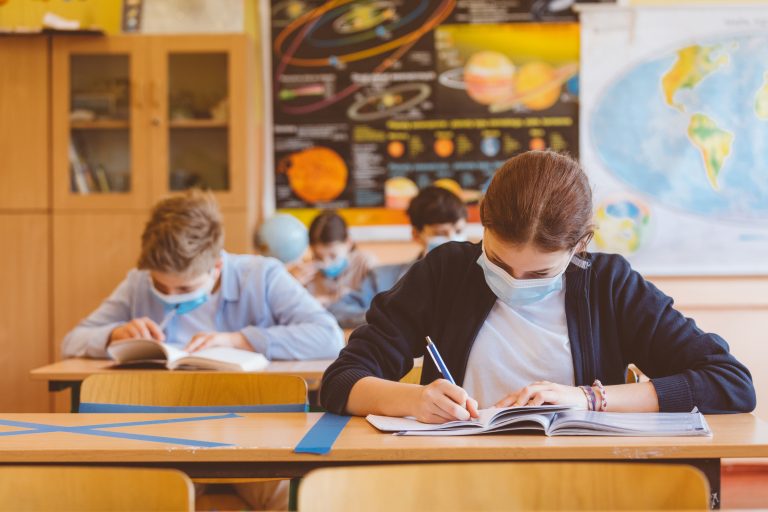
A comprehensive single-cell study comparing the response to SARS-CoV-2 infection in adults and children shows children have a stronger innate immune respiratory response to the virus than adults, allowing them to effectively stop the infection at an early stage.
As the COVID-19 pandemic has progressed, it has become clear that children are less badly impacted by the virus than adults. However, the reason for this is still not completely understood.
To investigate this further, an in-depth single cell study led by researchers at University College London and the Wellcome Sanger Institute in the UK was carried out on nasal, tracheal, bronchial and blood samples taken from 19 children and 18 adults with COVID-19, plus 41 healthy children and adults who acted as controls.
Published in the journal Nature, the study showed that children had a stronger innate immune response to SARS-CoV-2 infection than adults. Even in healthy airways, children had cells already in an “interferon-activated state” ready to target infection.
“We postulate that higher pediatric innate interferon-responses restrict viral replication and disease progression,” write the authors.
The systemic response in children was also different to adults, characterized by higher numbers of ‘naive’ lymphocytes and a lower levels of natural killer cells. In contrast, adults had higher levels of cytotoxic T cells and a significant increase in interferon-stimulated subpopulations of cells.
The findings would fit with what is known about the immune response in children. Children have a more active innate immune response than adults that is able to quickly recognize and attack dangerous pathogens. Adults have more ‘memory’ B and T immune cells, which have been trained to respond to past pathogen exposures over time, than children, but a less active innate response.
“Because SARS-CoV-2 is a new virus, it isn’t something that the adaptive immune system of adults has learned to respond to,” explained Masahiro Yoshida, a first author of the study from UCL, in a press statement.
“The innate immune system of children is more flexible and better able to respond to new threats. What we see at a molecular level are high levels of interferons and a very quick immune response in children that helps to explain why they are less severely affected by COVID-19 than adults.”
The researchers think that the slower activity of the adult innate immune response could explain why COVID-19 cases are more frequent and generally more severe in adults than children, as the virus is able to become more established in the body and is harder for the immune system to eradicate. The more serious infection can then lead to the excessive immune response and cytokine storm seen in many adults with COVID-19.
“Compared to children, adult blood has a greater number and variety of cytotoxic immune cells, which are designed to kill infected cells to prevent an infection spreading. But it is a fine line between helping and hindering,” says Marko Nikolić, a senior author of the study from UCL.
“Once the virus has spread to several areas of the body, organ damage can be caused by the immune system trying and failing to control the infection. Our study shows that not only do children respond better initially, if the virus does enter the blood the cytotoxic response is less forceful.”
The authors think their findings could be used to more accurately predict who is likely to experience severe disease by testing for airway interferon levels in newly diagnosed adults. If they are high, the results from this study suggest that these individuals are less likely to become seriously ill, whereas if they are low, treatment and monitoring could be tailored accordingly.













